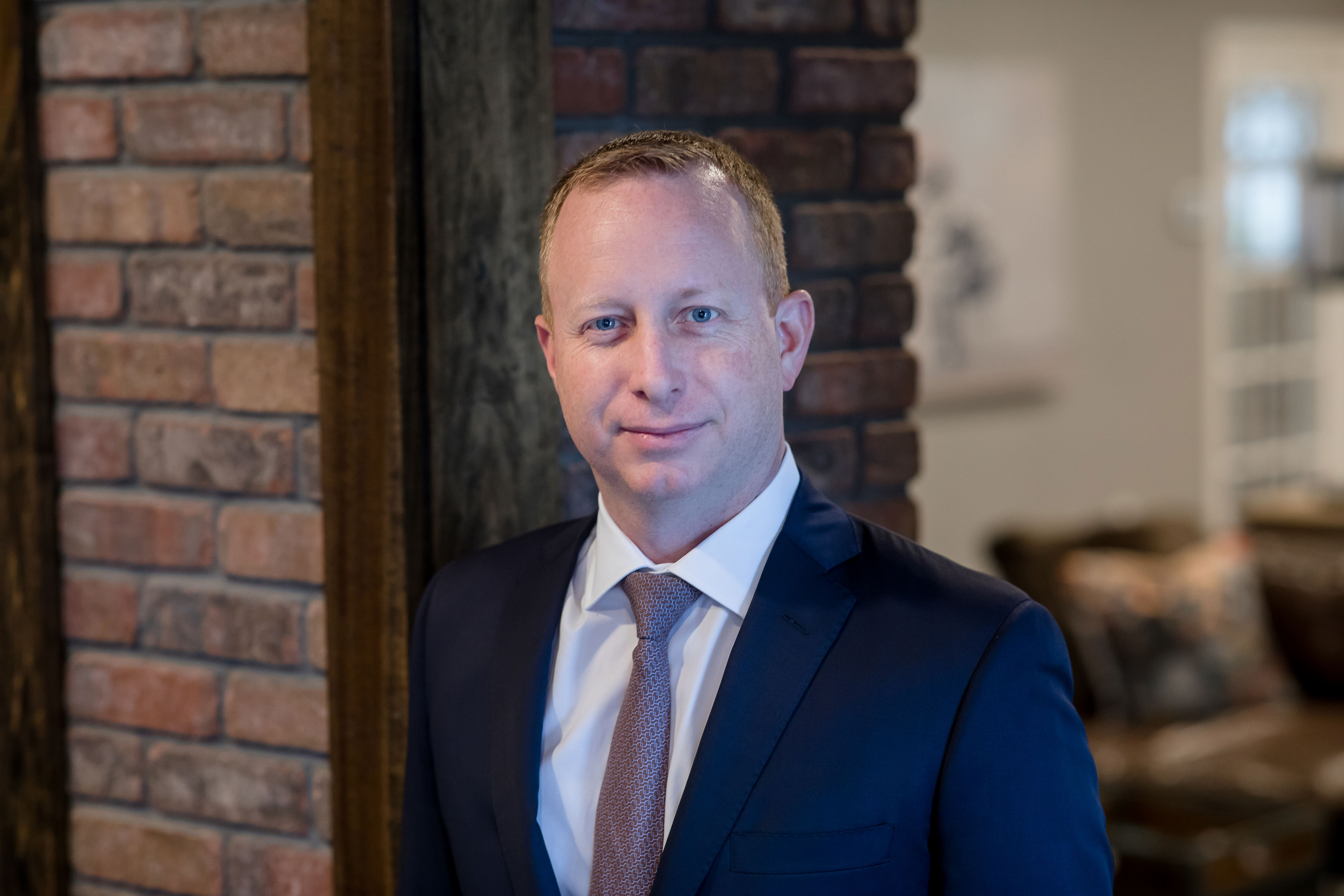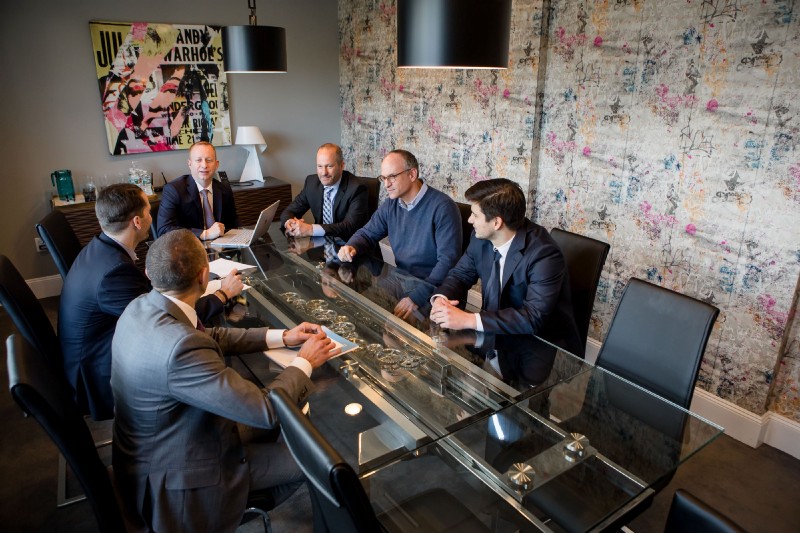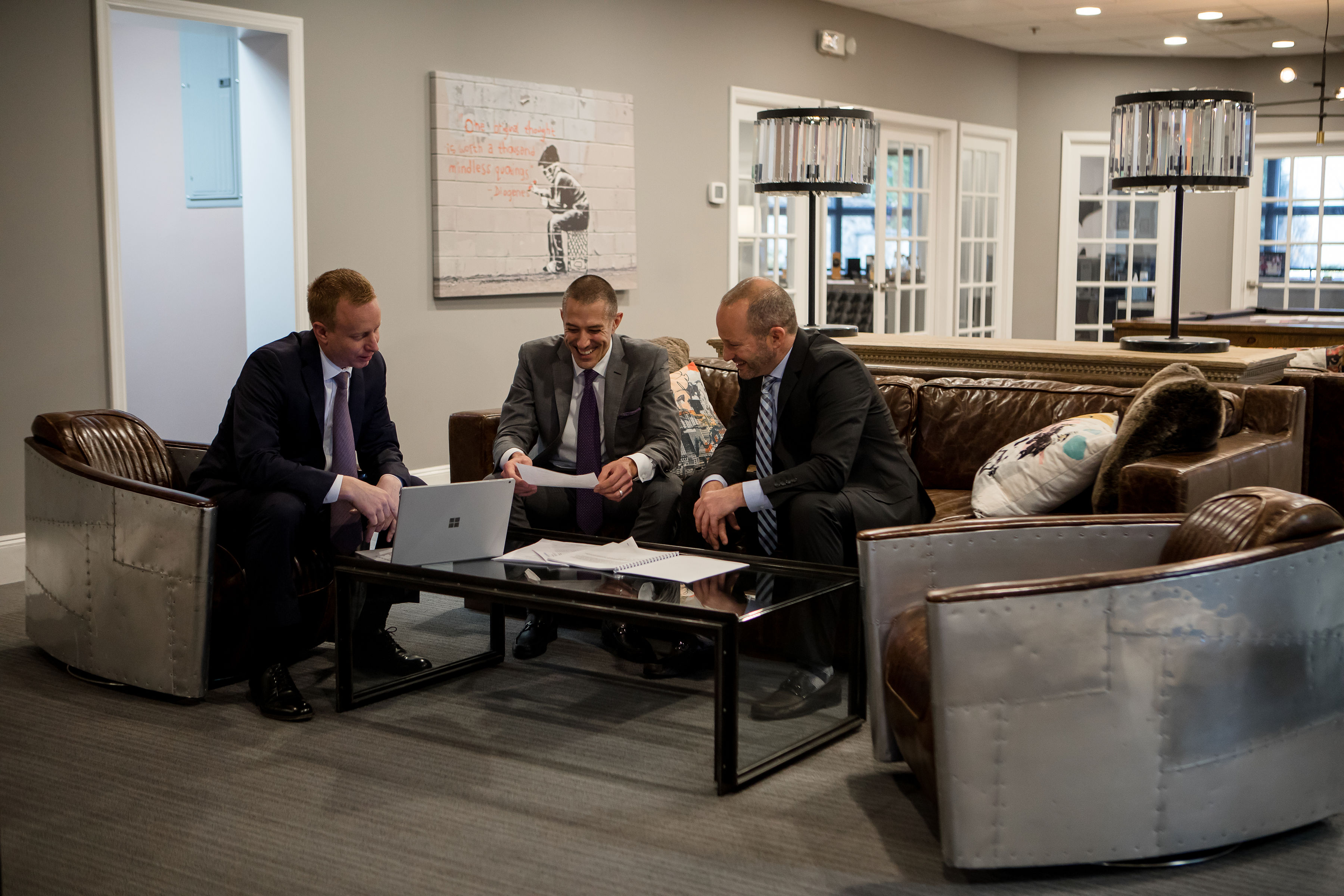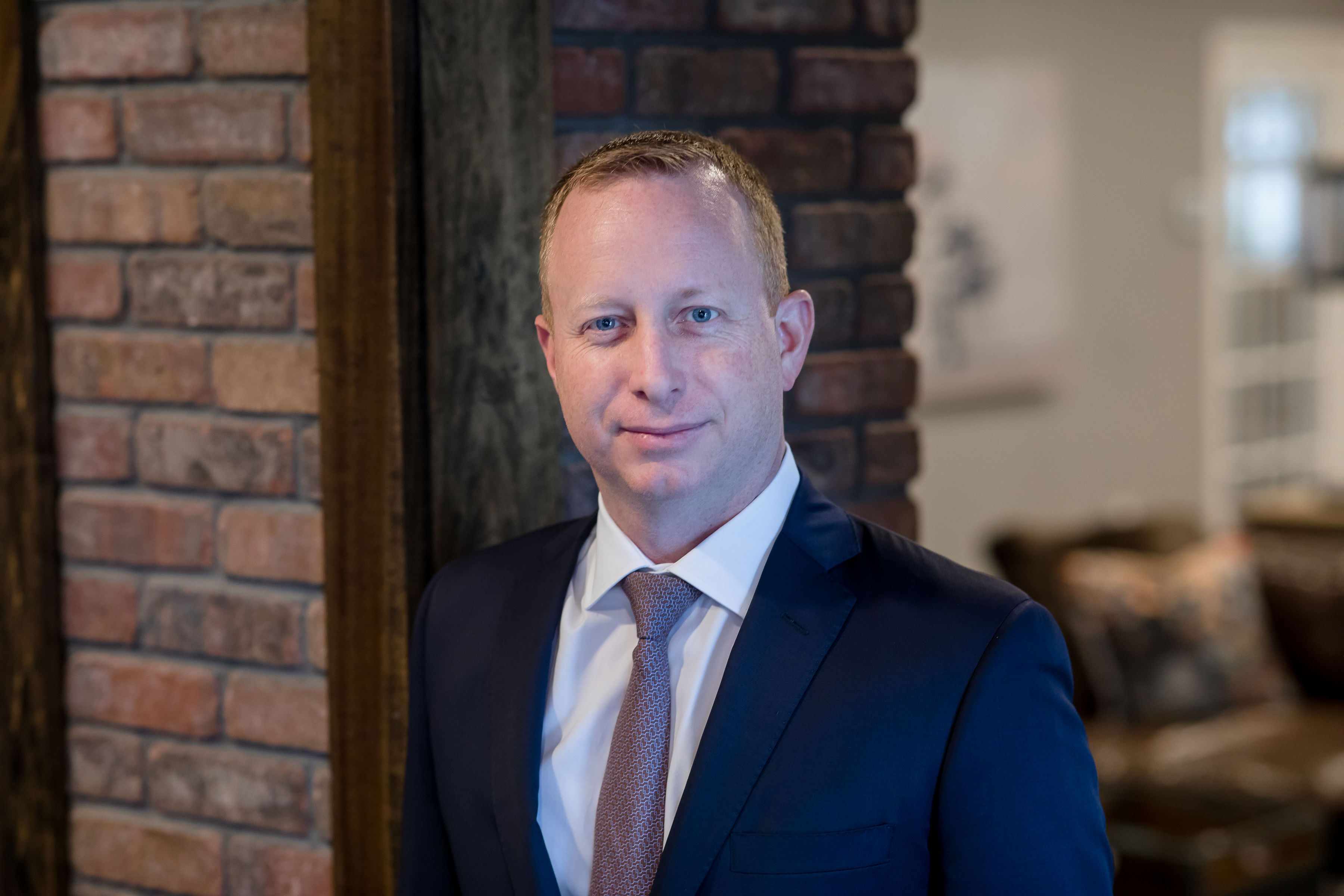
As part of my series about prominent entrepreneurs and executives that overcame adversity to achieve great success, I had the pleasure of interviewing Mark Angelo, President and Managing Member of Yorkville Advisors Global.
Since inception, he has guided the firm in executing financial transactions worth approximately $4 billion in almost 700 companies. As portfolio manager, Mark is responsible for overseeing many aspects of the day-to-day operations, including deal structuring, investment decisions and business development.
Jason Crowley: Thank you so much for doing this with us! Can you tell us the “backstory” about what brought you to this specific career path?
Mark Angelo: As a New Jersey native, born and raised in Burlington, I attended Rutgers University and graduated in 1994 with a degree in economics. Intrigued by business and finance as a teenager, after graduation I took a job at a small retail brokerage firm called the Boston Group — not to be confused with the large consulting firm — that had offices in New York, Los Angeles and, of course, Boston. It was my first job out of college and I had a terrific experience. After 3 years, I moved on from the Boston Group to the May Davis Group where I was introduced to private placements — an experience that would later influence my long-term career plans — and eventually co-ran the firm’s Investment banking division. I worked tirelessly with my team to find small cap companies that our institutional clients may want to make direct investments in. In this role, I prepared sample term sheets and structured deals, acting as an agent to negotiate the best deal while simultaneously managing expectations for the companies as to how capital would reach them — quickly and efficiently.
After years of working as an agent, I decided I was ready to take the next step and act solely as principal. I wanted to be the capital provider on selected transactions and not sell shares to other investors. In 2001, with $1.5 million and a few trusted partners, I launched our first fund. We grew that fund to $1 billion and achieved a significant track record.
Crowley: Can you share your story of when you were on the brink of failure? First, take us back to what it was like during the darkest days.
Angelo: After the financial crisis in 2009 and in the wake of its failure to detect Madoff, the SEC launched an initiative to monitor performance claims by hedge fund and other investment managers. The initiative was designed to red flag hedge funds that had positive outlier returns using an analytic tool called the Aberrational Performance Inquiry (“API”). The belief was that if an investment fund’s returns were too strong, then they must be fraudulent. The API red flagged our returns and asked to examine our books. Eventually we were investigated and then sued by the SEC, in a process that lasted over 9 grueling years.
To give some background to how serious this situation can be, for most firms like ours this is a virtual “death knell.” When the case was first filed, the story appeared on the front page of the Wall Street Journal. This unwanted notoriety added pressure to an already difficult marketplace that saw asset prices spiraling from the crisis, as well as jittery investors pulling money. We were losing money, were forced to lay off important members of our team and were dealing with the coercive pressure of an SEC lawsuit — those were pretty dark days.
In 2009, we faced business challenges, reputational challenges and regulators who were digging into our books and talking to our employees, investors and service providers, trying to find evidence of wrongdoing that I always knew wasn’t there. Throughout the 9 years that we fought, there always pressure to settle — and to be honest I think the SEC would have preferred us to settle. But that option was never on the table. It was our view — and correctly so — that the allegations never should have been brought and we were victims of circumstance, following news of illegal Ponzi schemes and irresponsible trading practices threatening to bring down the largest financial institutions.
Despite the toll the lawsuit took on me personally and professionally, there was never an issue in my mind — we were never going to settle. We grinded through it and it took nearly a decade, but in 2018, a federal judge dismissed substantially the entire case and the SEC voluntarily dismissed the remaining charges of the lawsuit, thus vindicating our efforts.

Crowley: What was your mindset during such a challenging time? Where did you get the drive to keep going when things were so hard?
Angelo: I never gave up, never doubted our innocence. In some ways I am an eternal optimist. I didn’t allow my mind the luxury of thinking we could end this nightmare by settling something that we were not guilty of doing. By settling, you don’t have to admit wrongdoing but you also can’t deny it and say you’re “innocent.” Your reputation is everything and by settling I felt that I would be compromising my integrity and I certainly don’t want that legacy for myself or my family. But we prevailed in the end and are thriving today as a smaller firm, still delivering strong performance for our investors.
Crowley: Tell us how you were able to overcome such adversity and achieve massive success? What did the next chapter look like?
Angelo: We hunkered down as a team and just grinded it out. We were aided by very competent lawyers who were prepared at every turn and we prevailed. We took things day by day and never lost sight of our goal — to prove that this lawsuit was meritless and that we had done nothing wrong. At the same time, we did focus on our next chapter and actually launched a new fund during the chaos, providing that proverbial “light at the end of the tunnel.” Not every investor stuck with us — indeed many left — and I can’t blame the ones who did. We were facing a well-funded government behemoth that was seemingly willing to drag this out and we knew the time frame wouldn’t be quick. And even if you do survive, there are some reputational hits that will always follow you.
Crowley: Based on your experience, can you share 3 actionable pieces of advice about how to develop the mindset needed to persevere through adversity? (Please share a story or example for each.)
Angelo:
1 — You’re either wired to fight back…or you’re not. Being mentally, emotionally and physically prepared to fight a 9-year battle with the SEC is not something you can be “taught.” On a basic human level you’re wired to fight, to be confident and optimistic about your chances and prepared to go the distance until you win…or you’re not. I knew the facts were on our side but you just never know. There were times I was nervous and anxious but my confidence never wavered.
2 — Always payattention to detail. This is so important, I cannot stress it enough. In this kind of situation, you must focus on the details and be able to communicate your side of the story. It might surprise some people, but we always felt more prepared than the SEC and paid more attention to the small details in the case. I truly believe at every turn our lawyers were the smartest and most prepared lawyers in the room, leaving no stone unturned to prove our innocence.
3 — Don’t run from a negative headline. This isn’t easy. Sometimes you want to bury your head and not discuss what’s going on around you. That did not feel right to me so I chose to face questions head on, answer as honestly and as openly as I could and felt that the people who believed me would be there when we got to the other side. Throughout the lawsuit, we spoke to all of our investors and didn’t hide — in my view, the minute you’re less visible, you’ve done something wrong. Ask me anything.
Crowley: None of us are able to achieve success without some help along the way. Is there a particular person who helped get you to where you are? Can you share a story about that?
Angelo: I had wonderful, loving parents growing up. I was very close with my Dad, who taught me to take pride in your accomplishments, not to run from your failures and approach life with a sense of responsibility and accountability. We are all human, we all make mistakes.
Crowley: Are you working on any exciting new projects now? How do you think that will help people?
Angelo: We are about to start fundraising, with plans to thoughtfully and carefully expand our business. We are also exploring opportunities to bring on new staff members. During the financial crisis and then throughout the lawsuit, we significantly reduced our staff and consolidated our office space. We went from 80 employees to under 20 in a very short period of time, adversely affecting the lives of many people we care about. As a business owner, you never want to let your employees down and in some ways, we had to — we had no choice. So perhaps through fundraising and with the lawsuit behind us, we can expand again.
Crowley: You are a person of great influence. If you could inspire a movement that would bring the most amount of good to the most amount of people, what would that be? You never know what your idea can trigger. 🙂
Angelo: Every summer we invite 9 or 10 college students to spend 6 weeks with us as finance interns and I am very proud of our internship program. I love mentoring college kids and I personally spend approximately 2 hours with them per day. I love to teach them our business and show them how markets work. For a firm our size, this intern program is quite large but I think it’s an important part of our future. As we grow, I would love to expand this program to include more students.
Crowley: Any parting words of wisdom that you would like to share?
Angelo: Never quit, never give up. Be faithful to the grind and own it.
Crowley: How can our readers follow you on social media?
Angelo: No social media for me!
Crowley: Thank you so much for joining us. This was very inspirational.



